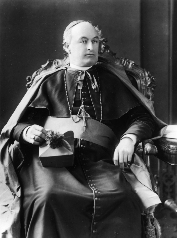TeeJF
Well-known member
- Joined
- Feb 25, 2011
- Messages
- 2,883
- Reaction score
- 3,095
We first attempted this place quite a long while ago when we were still fairly new to this forum but we failed because the BeeB were in residence at the time filming. Late last year though it popped up on the radar so we decided to head south and give it a little look. I've managed to find one or two interesting bits and bobs out about the place but please forgive me if I am repeating what anyone else has already said - the thing is, I can't be *rsed going back through all the recent reports on the place to find out what I should and shouldn't bother reporting now!
A long trawl through Wikipedia and a variety of other sites mentioned therein threw up some interesting information on this enormous religious site in Mill Hill, London. I am afraid I must admit that I have practically lifted the information wholesale with little more than tense alteration of the text to reflect the fact that the original information, whilst accurate is now rather out of date time-wise. Being a none religious kind of person, a word the like of "Diocese" for example sounds like a horrible scabrous, purulent condition a dyslexic might contract, and obviously such Churchianty-speak doesn't mean a terrific lot to a heathen like me, but I didn't want to get any facts wrong in case I p*ss someone off from Big G Inc. and get excommunicated for my sins, so please read the following with that fact in mind!
"A society of priests and laymen whose object was to labour for the conversion of heathens in foreign countries. It owed its origin to Cardinal Vaughan (died 1903) who, when still but a priest, founded in 1866 St. Joseph's Missionary College in a villa near Mill Hill, about ten miles north of London. It was the purpose of this college to train missionaries to propagate the Gospel among un-evangelized (sic) races beyond Europe, especially the negroes of Africa and the United States of America. On 1st. March, 1871, the college was transferred to a larger building erected for the purpose at Mill Hill, and in 1884 St. Peter's School was founded at Freshfield near Liverpool, to serve as a preparatory school to the college at Mill Hill. There were two other branch colleges: St. Joseph's Missiehuis, at Rozendaal, Holland, erected in 1890; and St. Josef's Missionshaus, at Brixen, Tyrol, erected in 1891. St. Joseph's Society, Mill Hill, was under the direction of the superior general, Very Rev. Francis Henry, and comprised about 200 priests and 10 lay brothers. About 170 of these priests were engaged as missionaries, the others as teachers in the above named colleges. The following missions were under the care of the Society: the Telugu Mission in the Archdiocese of Madras in British India, since 1875; the Prefecture Apostolic of Labuan and North Borneo, since 1881; the Maori Mission in the Diocese of Auckland, New Zealand, since 1886; the Prefecture Apostolic of Kafiristan and Kashmir in the northern part of India, since 1887; the Vicariate Apostolic of the Upper Nile or Uganda in British East Africa, since 1894; a few stations in the Belgian Congo, since 1903; and in the Diocese of Jaro, in the Philippine Islands, since 1906, there were about thirty priests of the society. The rules and constitutions of the society received the final definite approval of the Holy See, 25th. April, 1908."
Of the founder, Herbert Alfred Vaughan, Wikipedia has this to say...
Herbert Alfred Vaughan BELOW (1832–1903) was an English prelate of the Roman Catholic Church. He served as Archbishop of Westminster from 1892 until his death, and was elevated to the cardinalate in 1893. He was the founder in 1866 of St Joseph's Foreign Missionary College, known as Mill Hill Missionaries. He also founded the Catholic Truth Society. In 1871 Vaughan led a group of priests to the United States to form a mission society whose purpose was to administer to freedmen. In 1893 the society reorganized (sic) to form the US-based St. Joseph Society of the Sacred Heart, known as the Josephite Fathers. Vaughan also founded St. Bede's College, Manchester. As Archbishop of Westminster, he led the capital campaign and construction of Westminster Cathedral. It was Vaughan's most cherished ambition to see an adequate Westminster Cathedral. He worked untiringly to secure subscriptions for a capital campaign, with the result that the foundation stone for the cathedral was laid in 1895. When Vaughan died in 1903 at the age of 71, the building was so far complete that a Requiem Mass was said there. His body was interred at the cemetery of St. Joseph's College, the headquarters of the Mill Hill Missionaries in North London but it was later moved to the Cathedral BELOW.


In addition to the missionary fathers a society of female missionaries known as The Sisters of Saint Joseph's Society for Foreign Missions was also created at the same time though whether or not they worked from the same seminary is rather unclear.
"Of the Third Order Regular of St. Francis, founded in 1883 by Cardinal Vaughan and Mother Mary Francis Ingham, to co-operate in the work of the Mill Hill Fathers. The cardinal's idea was that the sisters should stand in the same relation to the fathers of the society as the Sisters of Charity of St. Vincent de Paul to the Lazarist Fathers. They undertook any work, at home or abroad, indicated for them by the superior general or the bishop of the diocese. There were no lay sisters. The novitiate was at Patricraft, (sic) Manchester, where the sisters also had homes for boys and girls and a nursery, with about 200 children under 40 sisters. In addition to their establishments at Mill Hill and Manchester, the congregation had a branch house at Blackburn with boarding-schools for boys and girls of the middle class and an orphanage for children of the poorer class, with 10 sisters in charge of 70 to 80 children; at Blackburn the sisters taught in 3 elementary schools. They had branches also at Freshfield (Liverpool), at Waterford and Cork in Ireland, and at Rozendaal in Holland. In Borneo there were 17 sisters at various mission stations. The total number of professed sisters in the congregation was 120."
The seminary was eventually closed in 2006, boarded up and on site security provided. Early in 2011 we heard mention of it through the grapevine and it looked and sounded so appealing that we decided we should attempt to gain entry to explore the site. Sadly however Tracy's initial recce visit in the May, undertaken whilst I was working at Wembley, met with failure when the security woman at the gate informed her that the BBC were in residence filming what turned out to be "Call The Midwife" starring Jessica Raine, Miranda Hart, Cliff Parisi, Jenny Agutter, Pam Ferris and Judy Parfitt, a drama about church funded midwifery during the post war austerity of the 1950s. I think that the publicity photograph seen BELOW shows members of the cast standing on the steps outside part of the building.

It was doubly annoying for Tracy that the security person on site - a woman for a change - said that had the place been empty at that point she would happily have shown her around! Such is life. Circumstances did not permit another visit for some significant time and then suddenly the building popped up on the urbex radar around December 2012 with a series of visits by other explorers yielding a positive cornucopia of lovely photographs. We resolved to make a serious attempt at the earliest possible opportunity so in February 2013 in the company of Priority7 we rocked up on site at the crack of dawn - which was not actually quite as bad as it sounds as it was actually about 7.30 AM!

First view of the primary facade of the building.

Around the back of the building, cellars with boiler room and what appears to be a caretaker's flat to our right.

Just like at St. Joseph's Seminary near Wigan which we visited back in 2011 there is a church built within the seminary.

This window lets the sun shine down the length of the nave, however it was still quite dark at this point

And here is the main reason we wanted to explore Saint Josephs.

I assume the alter stood at this point as it is the primary focus of the processional way up the nave.

An alternative angle...

I love stained glass however this is the first time I have seen a simplistic almost impressionistic style of work like this anywhere.

A viewing gallery is situated above the church floor.

Looking across the knave from the first floor gallery.

I love the dark painted brickwork with the heavy hardwood doors and casings.

Is it security who are growing their brassicas here



Stair porn

A view across the roof tops.

A key is still in the lock of this door - I wonder why

How enlightened of the Roman Catholic Church

 .
.

A sleepy London skyline.

Corridor porn

the aesthetics of this building really appeal to me.

Attention to architectural detail.

Wangle view...

A kind of general purpose room methinx or possibly the refectory.

Time to go.

Just time for a few exterior shots.

I dipped in and out of one episode of the drama to see if I could recognise any of the location areas and I'm pretty sure I saw this.

A study in Victorian magnificence.
And that's your lot!
 A big thank you to the guys who helped us out on this one, you know who you are.
A big thank you to the guys who helped us out on this one, you know who you are. 
The history bit...
A long trawl through Wikipedia and a variety of other sites mentioned therein threw up some interesting information on this enormous religious site in Mill Hill, London. I am afraid I must admit that I have practically lifted the information wholesale with little more than tense alteration of the text to reflect the fact that the original information, whilst accurate is now rather out of date time-wise. Being a none religious kind of person, a word the like of "Diocese" for example sounds like a horrible scabrous, purulent condition a dyslexic might contract, and obviously such Churchianty-speak doesn't mean a terrific lot to a heathen like me, but I didn't want to get any facts wrong in case I p*ss someone off from Big G Inc. and get excommunicated for my sins, so please read the following with that fact in mind!
The seminary of Saint Joseph at Mill Hill in London was...
"A society of priests and laymen whose object was to labour for the conversion of heathens in foreign countries. It owed its origin to Cardinal Vaughan (died 1903) who, when still but a priest, founded in 1866 St. Joseph's Missionary College in a villa near Mill Hill, about ten miles north of London. It was the purpose of this college to train missionaries to propagate the Gospel among un-evangelized (sic) races beyond Europe, especially the negroes of Africa and the United States of America. On 1st. March, 1871, the college was transferred to a larger building erected for the purpose at Mill Hill, and in 1884 St. Peter's School was founded at Freshfield near Liverpool, to serve as a preparatory school to the college at Mill Hill. There were two other branch colleges: St. Joseph's Missiehuis, at Rozendaal, Holland, erected in 1890; and St. Josef's Missionshaus, at Brixen, Tyrol, erected in 1891. St. Joseph's Society, Mill Hill, was under the direction of the superior general, Very Rev. Francis Henry, and comprised about 200 priests and 10 lay brothers. About 170 of these priests were engaged as missionaries, the others as teachers in the above named colleges. The following missions were under the care of the Society: the Telugu Mission in the Archdiocese of Madras in British India, since 1875; the Prefecture Apostolic of Labuan and North Borneo, since 1881; the Maori Mission in the Diocese of Auckland, New Zealand, since 1886; the Prefecture Apostolic of Kafiristan and Kashmir in the northern part of India, since 1887; the Vicariate Apostolic of the Upper Nile or Uganda in British East Africa, since 1894; a few stations in the Belgian Congo, since 1903; and in the Diocese of Jaro, in the Philippine Islands, since 1906, there were about thirty priests of the society. The rules and constitutions of the society received the final definite approval of the Holy See, 25th. April, 1908."
Of the founder, Herbert Alfred Vaughan, Wikipedia has this to say...
Herbert Alfred Vaughan BELOW (1832–1903) was an English prelate of the Roman Catholic Church. He served as Archbishop of Westminster from 1892 until his death, and was elevated to the cardinalate in 1893. He was the founder in 1866 of St Joseph's Foreign Missionary College, known as Mill Hill Missionaries. He also founded the Catholic Truth Society. In 1871 Vaughan led a group of priests to the United States to form a mission society whose purpose was to administer to freedmen. In 1893 the society reorganized (sic) to form the US-based St. Joseph Society of the Sacred Heart, known as the Josephite Fathers. Vaughan also founded St. Bede's College, Manchester. As Archbishop of Westminster, he led the capital campaign and construction of Westminster Cathedral. It was Vaughan's most cherished ambition to see an adequate Westminster Cathedral. He worked untiringly to secure subscriptions for a capital campaign, with the result that the foundation stone for the cathedral was laid in 1895. When Vaughan died in 1903 at the age of 71, the building was so far complete that a Requiem Mass was said there. His body was interred at the cemetery of St. Joseph's College, the headquarters of the Mill Hill Missionaries in North London but it was later moved to the Cathedral BELOW.


In addition to the missionary fathers a society of female missionaries known as The Sisters of Saint Joseph's Society for Foreign Missions was also created at the same time though whether or not they worked from the same seminary is rather unclear.
"Of the Third Order Regular of St. Francis, founded in 1883 by Cardinal Vaughan and Mother Mary Francis Ingham, to co-operate in the work of the Mill Hill Fathers. The cardinal's idea was that the sisters should stand in the same relation to the fathers of the society as the Sisters of Charity of St. Vincent de Paul to the Lazarist Fathers. They undertook any work, at home or abroad, indicated for them by the superior general or the bishop of the diocese. There were no lay sisters. The novitiate was at Patricraft, (sic) Manchester, where the sisters also had homes for boys and girls and a nursery, with about 200 children under 40 sisters. In addition to their establishments at Mill Hill and Manchester, the congregation had a branch house at Blackburn with boarding-schools for boys and girls of the middle class and an orphanage for children of the poorer class, with 10 sisters in charge of 70 to 80 children; at Blackburn the sisters taught in 3 elementary schools. They had branches also at Freshfield (Liverpool), at Waterford and Cork in Ireland, and at Rozendaal in Holland. In Borneo there were 17 sisters at various mission stations. The total number of professed sisters in the congregation was 120."
The seminary was eventually closed in 2006, boarded up and on site security provided. Early in 2011 we heard mention of it through the grapevine and it looked and sounded so appealing that we decided we should attempt to gain entry to explore the site. Sadly however Tracy's initial recce visit in the May, undertaken whilst I was working at Wembley, met with failure when the security woman at the gate informed her that the BBC were in residence filming what turned out to be "Call The Midwife" starring Jessica Raine, Miranda Hart, Cliff Parisi, Jenny Agutter, Pam Ferris and Judy Parfitt, a drama about church funded midwifery during the post war austerity of the 1950s. I think that the publicity photograph seen BELOW shows members of the cast standing on the steps outside part of the building.

It was doubly annoying for Tracy that the security person on site - a woman for a change - said that had the place been empty at that point she would happily have shown her around! Such is life. Circumstances did not permit another visit for some significant time and then suddenly the building popped up on the urbex radar around December 2012 with a series of visits by other explorers yielding a positive cornucopia of lovely photographs. We resolved to make a serious attempt at the earliest possible opportunity so in February 2013 in the company of Priority7 we rocked up on site at the crack of dawn - which was not actually quite as bad as it sounds as it was actually about 7.30 AM!
The photos...

First view of the primary facade of the building.

Around the back of the building, cellars with boiler room and what appears to be a caretaker's flat to our right.

Just like at St. Joseph's Seminary near Wigan which we visited back in 2011 there is a church built within the seminary.

This window lets the sun shine down the length of the nave, however it was still quite dark at this point


And here is the main reason we wanted to explore Saint Josephs.

I assume the alter stood at this point as it is the primary focus of the processional way up the nave.

An alternative angle...

I love stained glass however this is the first time I have seen a simplistic almost impressionistic style of work like this anywhere.

A viewing gallery is situated above the church floor.

Looking across the knave from the first floor gallery.

I love the dark painted brickwork with the heavy hardwood doors and casings.

Is it security who are growing their brassicas here




Stair porn

A view across the roof tops.

A key is still in the lock of this door - I wonder why


How enlightened of the Roman Catholic Church

 .
.
A sleepy London skyline.

Corridor porn


the aesthetics of this building really appeal to me.

Attention to architectural detail.

Wangle view...

A kind of general purpose room methinx or possibly the refectory.

Time to go.

Just time for a few exterior shots.

I dipped in and out of one episode of the drama to see if I could recognise any of the location areas and I'm pretty sure I saw this.

A study in Victorian magnificence.
And that's your lot!




































